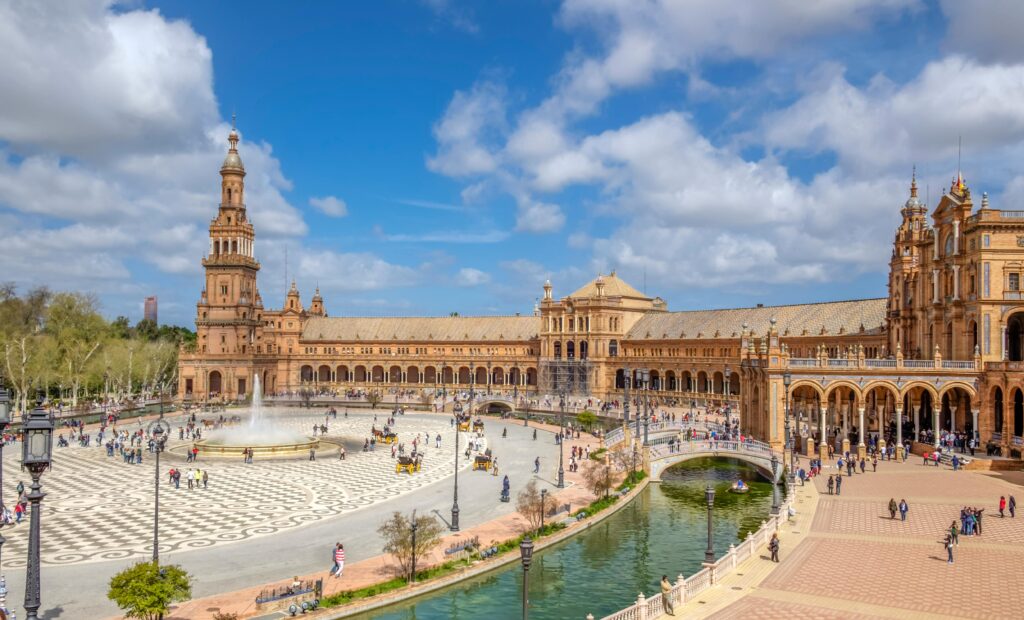According to a report by Google and Deloitte, Spain will be the most tourist-visited country in the world by 2040.
Last year it closed with a record-breaking 85.1 million tourists and the forecast for 2040 is a staggering 110 million, surpassing both France, which is the current number one travel destination, and the US.
Over the next 16 years, the number of global tourists is projected to reach 2.4 billion, increasing by 1 billion due to the growth of the middle classes around the world, and Spain is predicted to massively benefit from this trend.
The prediction of 110 million visitors would indicate an increase of 24%, since the already staggering 85.1 million in 2023: a record number of tourists that prompted the opening of numerous restaurants, bars and hotels to accommodate this influx of new patrons and guests.

Since the dip due to the pandemic, tourism in Spain is recovering at a very good pace. This year, 6.3 million international tourists visited Spain in March alone, 21% more than in the same period in 2023, according to data from the National Institute of Statistics (INE). The country has once again surpassed its record for tourist spending during the same month, as foreign visitors spent 8.65 million euros, an increase of 29.7% compared to March of last year.
Although within these exceptional data, the problem of mass tourism is hidden, a fact that has caused numerous protests in territories such as the Canary Islands and the Balearic Islands, due to the negative impact on living conditions, including thousands of tourist apartments in the center of cities, housing prices and access to housing for residents.
In terms of sending countries, China is expected to lead in 2040 with 310 million residents traveling the world. The United States will follow with 260 million, and the United Kingdom and India, both with 145 million tourists. Russia, South Korea and Pakistan will also be in the top ten, with 60 million for the first two and 35 million for the third.

All of this has generated an intense debate among destinations about how to manage or limit this mass tourism.
The change will also be traumatic among the major tourist destinations in the world. Apart from Spain, France and the United States, the remaining seven positions in the top ten show how emerging countries will not only issue travelers, but will become destinations for millions of people.
“This new scenario has implications in three main levers. Travel operators must adapt to the emergence of new source markets, the rise of new technologies and ESG requirements. The second is business models, in which flexibility, hyper-personalization and the reconfiguration of the industry will play a key role. The third lever is made up of the mechanisms of how companies in the sector interact with a resilient workforce, with algorithms and automation and with the new centers of financial gravity,” says Jorge Gilabert, partner at Monitor Deloitte.

The process of concentration of tourists in a few destinations, as is currently happening in European enclaves such as Paris, Rome, Florence or Venice, will worsen over time, as the report advances. Europe will continue to receive 47% of world tourists (1.12 billion), while the Asia Pacific region will host 640 million, 27% of the total. The Deloitte and Google study further refines the analysis and concludes that 45% of total travelers around the world will be concentrated in four key destinations: the Mediterranean countries (480 million), Southeast Asia (255), the Middle East (175 ) and Caribbean (145).
“With these transformations in the sector, it is more essential that companies have the appropriate tools. In fact, thanks to technologies such as artificial intelligence, they have the opportunity to better define their future strategy. The use of this type of solutions will not only provide greater efficiency and productivity in their processes, but will also contribute to a more sustainable development of tourism by offering relevant data for both companies and users,” says Maialen Carbajo. , director of Travel Retail and Aggregators at Google Spain.

